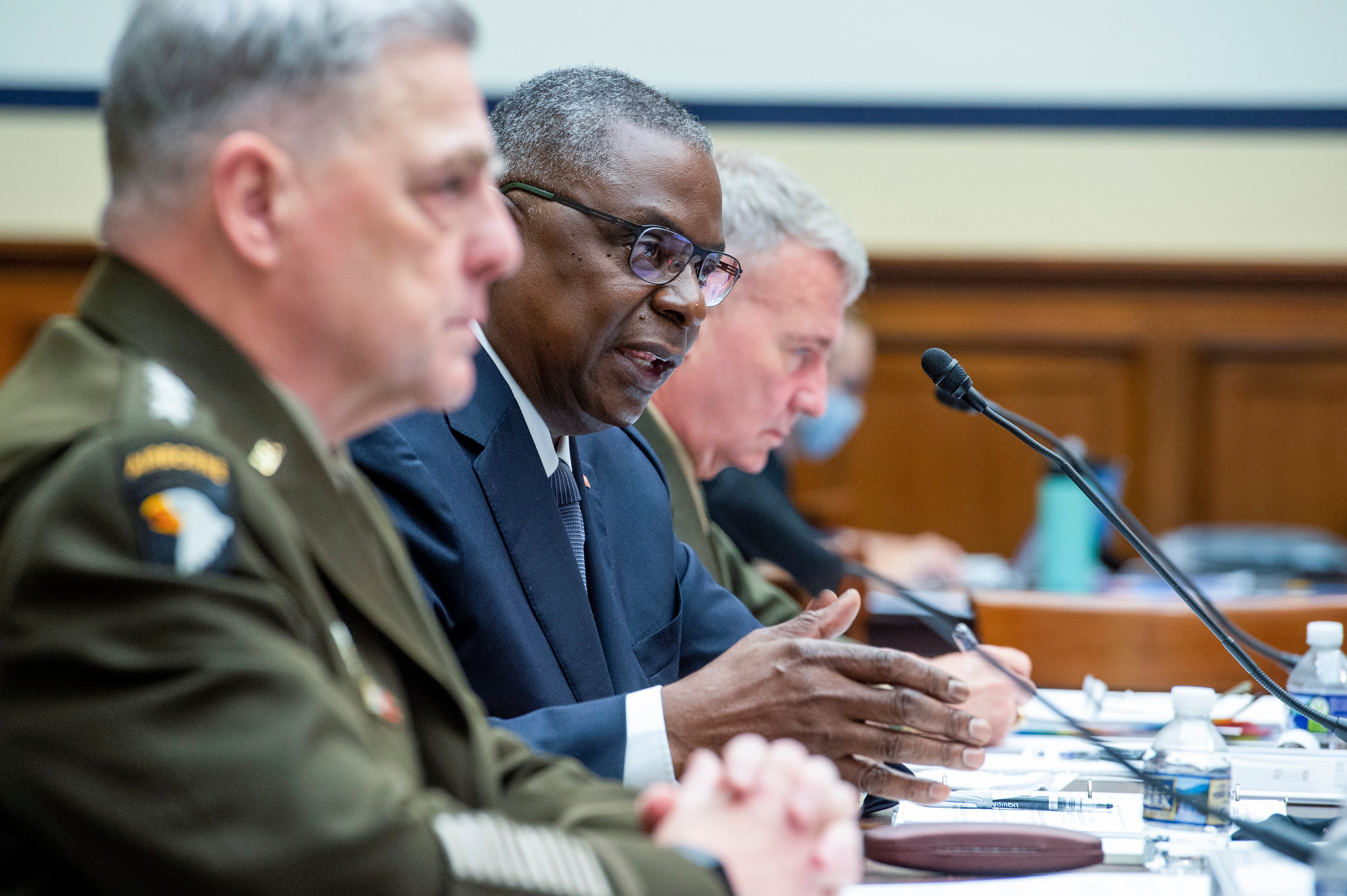WASHINGTON ― Spiking fuel prices will cost the Pentagon $3 billion more than expected in fiscal 2022, and it will have to go to Congress for more money, a senior official said in congressional testimony on Wednesday.
Comptroller Mike McCord, during a hearing on the Pentagon’s $773 billion FY23 defense budget request, said fuel will cost $1.8 billion more than expected for the rest of the year ― after Congress added $1.5 billion for increased fuel costs in the budget signed into law last month.
“Fuel is our most volatile and easily recognizable price increase when prices changed,” McCord told the House Budget Committee.
“Largely due to the Russian invasion of Ukraine, we estimate a bill of $1.8 billion for the rest of this year, so over $3 billion across the course of this fiscal year,” he said.
The comments came as Republicans and some centrist Democrats have criticized the low inflation rate used to plan the FY23 budget, arguing the national defense budget top-line should be higher than the $813 billion the administration is seeking. The FY23 budget is $30 billion, or 4%, over the $783 billion Congress appropriated this fiscal year.
RELATED

Top Pentagon leaders have previously acknowledged the FY23 budget’s assumed inflation rate of 2.2% would need to be updated by Congress. Amid questions about those inaccurate assumptions, McCord said inflation is a moving target that’s been driven higher by Russia’s invasion of Ukraine Feb. 24.
“I would agree that anyone who would fix inflation in advance is going to be wrong, and I know we’re going for more data,” McCord said.
After the hearing, McCord said the Defense Logistics Agency buys fuel for the entire department and, in turn, charges the armed services for the fuel they use. Because DLA cannot absorb any more fuel price shocks, it has informed the services their prices will rise May 1.
“Starting next week, you have a bill. We’re going to work with Congress on how we liquidate that bill,” McCord said. “Reprogramming [dollars between accounts] is one way to do it. If Congress would give you a supplemental [appropriations bill], you don’t need to reprogram. No question which I would like better.”
While the Consumer Price Index for March put inflation at 8.5%, McCord told lawmakers the department uses a separate measure, with specific price indices for fuel, housing and healthcare more tailored to DoD spending. He also said the inflationary rate for the administration’s budget request was dictated by the White House’s budget office.
“Prices continue to evolve as we finalized our budget. We recognize the impact of global economic conditions on our capabilities in this budget and we’re prepared to work with Congress on the best solutions to these challenges, McCord said.
RELATED

Lawmakers expect to receive a request on Thursday from President Joe Biden for additional Ukraine aid, as Biden has nearly run out of authority to continue sending weapons to Ukraine from U.S. stockpiles.
“As of this week, we will probably have used all of the authority that Congress gave us, and we will be coming back to you,” McCord said of the presidential drawdown authority.
Last month, Washington finalized the fiscal 2022 $1.5 trillion spending bill, which provides $13.6 billion in new aid for the Ukraine crisis — with $6.5 billion for the Pentagon. The Pentagon has since spent $961 million of the $3 billion provided for U.S. deployments to Europe and $2 billion of the $3.5 billion received to replenish DoD’s equipment.
The Pentagon will also return to Congress if it seeks to change its force posture in Europe in light of the conflict, McCord said. The department plans to this summer review its force posture in Europe and announce any changes after a NATO summit planned for June.
At the hearing, several Republican lawmakers linked rising inflation and the Pentagon’s diminished buying power to Biden’s economic policies. They chiefly criticized investments in climate resilience, but also spending to root out extremism in the ranks and proposed divestments of weapons Pentagon leaders deem unsuitable for competition with Russia and China.
“This year’s budget from President Biden promotes the same failed policies, and the defense budget is not immune from the administration’s misplaced priorities,” said the House Budget Committee’s ranking member, Rep. Jason Smith, R-Mo.
Joe Gould was the senior Pentagon reporter for Defense News, covering the intersection of national security policy, politics and the defense industry. He had previously served as Congress reporter.








